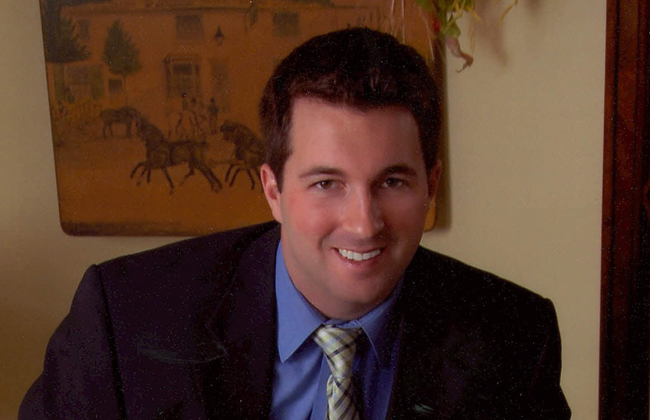As summer jobs go, it was certainly a resume enhancer.
Charles Allderdice of Signal Mountain, who had just finished his first year of medical school at the University of Tennessee Health Science Center, was selected to participate in a National Institutes of Health grant study last summer. He presented his team's findings over the winter at the Southern regional meeting of the American Federation for Medical Research in New Orleans and had an abstract of the study listed in the February issue of the Journal of Investigative Medicine.
"There are certain doctors on the UT faculty [who] are involved with studies the NIH helped fund," he said. "You have to apply, make a proposal and then be approved."
Dr. Karl T. Weber, the Neuton Stern Professor of Cardiovascular Medicine and director of the Division of Cardiovascular Diseases at the University of Tennessee Health Science Center's College of Medicine, led the studies.
According to information from the school, the educator has been involved with federally funded research for 40 years.
Of approximately 150 first-year students in the medical school, Weber said, perhaps 40 apply for research positions. Of those, perhaps 20 are selected.
"They get to do a little bit of everything," including doing hands-on work and learning research methodology, he said. "They're also expected to read the relevant literature that supports their story."
The studies Allderdice applied to be a part of were related to the cardiology field.
"It's an interest of mine," he said, "but I'm still open to anything."
The studies involved the drugs quercetin and carvedilol. They were to determine whether the individual drugs would prevent "any acute [heart] stress event" a patient might suffer while undergoing surgery.
Allderdice said the drugs aren't new but hadn't been studied for their effect on such stress events.
He said that quercetin, an antioxidant, is already available at retail outlets such as GNC and that carvedilol, a beta blocker, is being used to treat some heart problems.
Although the studies with rats indicated positive responses to both drugs, no immediate changes are expected because of the results, Allderdice said.
"There will be more studies that involve the drugs," he said.
Weber said Allderdice was selected to present the study on quercetin at the Southern regional meeting of the American Federation for Medical Research and received a trainee award to fund his expenses for the trip.
Fellow student Brian Cohen presented the study on carvedilol.
Allderdice, a Signal Mountain resident, is a 2004 graduate of McCallie School and a 2008 graduate in health sciences from the University of Alabama-Birmingham.
The rising third-year medical student is currently doing medical rotations at Erlanger hospital.
Contact Clint Cooper at ccooper@timesfreepress.com or 423-757-6497.

